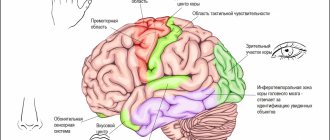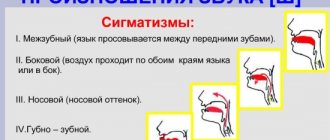As a speech therapist, I sometimes have to deal with situations when a father or mother, with tear-stained eyes, talk about how yesterday everything was fine, but today the child began to stutter and they don’t know how to get rid of stuttering. Or an adult who has suffered from this speech disorder since childhood gets the job of his dreams. And on the way to the coveted position, there is a damned illness.
However, there is no need to panic. There are certain methods, by studying which you may find the answer to the question: How to get rid of stuttering? Although, with such a complex speech disorder, you should under no circumstances refuse the help of specialists.
Causes of stuttering in teenagers
Mostly, the pathology appears in childhood: at 3–4 years. If stuttering is diagnosed in adolescents or an adult, this means that correction was not carried out at the right time or it was inadequate. But there are also cases when pathology appears for the first time in adolescence, and before that speech is normal.
In cases where pathology first appears in adolescents, this happens for several reasons:
- genetic predisposition, when there are disturbances in the functioning of the nervous system, when exposed to provoking factors they lead to stuttering or other speech disorders;
- neurological pathology;
- the presence of other speech defects, while the violation may be minor and not interfere with the teenager, but causes fear and spasms;
- difficult relationships in family, school, company;
- conflicts, stress;
- excessive stress on a teenager - both physical and psychological: a complex curriculum, tests, tests, exams;
- unfavorable environment - dysfunctional family, lack of attention on the part of parents, their indifference to the child;
- the opposite situation is too high demands made by parents, pressure and expectation from him of excellent studies, good results in all areas. At the same time, parents do not take into account the developmental characteristics of their child, his character and abilities;
- injuries of the central nervous system - at birth or after;
- infectious diseases, intoxications, endocrine disorders that affect the brain, especially if they are severe;
- convulsive reactions.
Whatever the cause, stuttering is not just a speech impediment. In most cases, this is a dysfunction of the nervous system with many consequences. Therefore, eliminating stuttering in adolescents is a complex task, in the solution of which several specialists take part: speech therapist-defectologist, neurologist, psychologist or psychiatrist.
What is stuttering? Secrets of our brain
According to the theory of speech production, the speech process is a kind of circle of information transfer between three brain centers located in the cerebral cortex - speech (Broca's center), auditory (Wernicke's center) and associative.
With the help of the associative center, we select the necessary words, arrange them in the required sequence, that is, we build a phrase. From the associative center, information is transmitted to the speech center, which processes it, emits the required number of nerve impulses and sends them to the muscles of the speech apparatus (lips, tongue, vocal cords, larynx), as well as the muscles involved in the act of breathing (diaphragm and chest) . A person exhales and speaks, while information in the form of speech enters the auditory center. Auditory control makes it possible to judge the correctness of speech, and if everything is pronounced correctly, information about this is returned to the associative center. This is a signal for the construction of the next phrase.
From this diagram it becomes clear that smooth speech is possible only when all three centers work synchronously, that is, when they transmit information at the same speed. When stuttering, this synchrony is disrupted. The “culprit” for this is Broca’s speech center. For various reasons, its activity is significantly increased, which causes it to produce more nerve impulses and transmit them to the muscles of the speech apparatus. This causes their additional contractions, which, when exhaling, leads to the appearance of convulsive stuttering.
There are two main forms of speech cramps:
- Clonic – convulsions that cause numerous speech repetitions (lo-lo-lo-zhka, ku-ku-ku-kla);
- Tonic – convulsions that hinder speech movements for a long time (t…….axe, m……..machine);
Most often, both forms occur in the speech of a stutterer.
General recommendations for the treatment of stuttering in adolescents
Parents' actions should begin with consultation with a specialist. The speech therapist will examine the medical history, speech characteristics, and ask about past illnesses, injuries, and possible causes that led to the disorder.
Self-medication on the advice of friends, without an in-person examination by a specialist, is unacceptable. This can make the situation even worse.
After the examination, the speech therapist refers the patient for consultation with specialists:
- a neurologist conducts a study to identify abnormalities in the nervous system. For this, skull radiography, electroencephalography, rheoencephalography, MRI, CT are used;
- the otorhinolaryngologist excludes diseases of the ENT organs that may affect speech;
- psychologist works with personality disorders.
If necessary, other doctors also work with the teenager: an endocrinologist, a psychiatrist.
After a complete diagnosis, the speech therapist selects treatment tactics for stuttering in adolescents. In mild cases, when stuttering occurs sporadically, in moments of emotional stress, it is enough to do the exercises yourself. Difficult situations when the defect is constantly present and interferes with normal life, medicinal treatment methods, massage, physiotherapeutic methods, and even hypnosis are used.
Typically, therapy is long-term: it may take more than one year to cope with the problem. An important condition is continuity of treatment: complete one course, rest a little, and start the next course. Follow all recommendations of the speech therapist. If you don't care about a teenager's speech impediment, he will follow your example and won't try.
Remember: only the joint efforts of the speech therapist, parents and the child himself will help achieve results.
Even after recovery, you should be on your guard: under unfavorable conditions, stuttering in adolescents can recur. Therefore, it is very important to eliminate all risk factors: avoid stress, reduce stress at school, create a favorable atmosphere at home.
Symptoms of stuttering
As we said at the very beginning, a person who stutters often repeats words or syllables and tends to draw out certain sounds. He may also find it more difficult to say certain words.
Also, people with this disorder sometimes become completely unable to speak for a few seconds at a time or begin to use interjections frequently to delay the onset of a word that the speaker knows is causing problems.
Examples of interjections include words such as “um,” “like,” “I mean,” “well,” or “hm.”
Here are the common symptoms associated with stuttering:
- Trouble starting a word, phrase, or sentence;
- Hesitation before pronouncing certain sounds;
- Repetition of a sound, word or syllable;
- Duration of some sounds;
- Stuttering of speech;
- Replacing some sounds with others.
In addition, physical symptoms such as:
- rapid blinking;
- lip trembling;
- foot tapping;
- jaw trembling;
- tension in the face and/or upper body.
Breathing exercises
When a teenager stutters, a spasm occurs in the muscles involved in articulation. The type of breathing is thoracic, which means superficial. Therefore, eliminating stuttering in adolescents begins with developing deep diaphragmatic breathing.
After classes, the diaphragm develops and the ligaments become more mobile so that the child begins to use breathing correctly in the process of speech formation, and maintain the pace of inhalation and exhalation. Hesitations associated with lack of air disappear, which means that fear goes away and the teenager becomes more relaxed.
There are many breathing exercises techniques, the most effective and popular is the method of A. N. Strelnikova. The technique is based on rhythmic breathing movements overcoming the resistance of the diaphragm.
The technique is as follows: the child takes a sharp breath, while making some movement, using the diaphragm muscles. After a series of breaths, he exhales calmly, then a new series of breaths. And so several repetitions.
As an example, here are a few exercises:
- “Palms” - the teenager stands or sits, arms along the body. During several successive sharp breaths, he should clench his fists rhythmically: and so on 8 times. Then exhale and a new series of breaths;
- “Pump” - legs apart, arms along the body. During inhalation, the child should bend forward, arms hanging down, back rounded. Exit - returns to the starting position;
- “Hug your shoulders” - arms in front of you and bent at the elbows, palms facing down, forearms on top of each other. When inhaling, you need to hug yourself by the shoulders, while your arms form a triangle.
How to stop stuttering when talking and nervous: 3 tips
Tip #1: Slow down
One of the most effective ways to stop stuttering is to speak slowly. Rushing to complete a thought can cause sounds to become longer, speech to speed up, or words to be difficult to pronounce.
Taking a few deep breaths and speaking slowly can help you overcome stress-related stuttering.
Tip #2: Practice
Ask a close friend or family member to sit with you and talk. Practicing speaking in a safe environment can help you feel more at ease with yourself and the way your speech sounds.
Talking to other people who stutter can also be helpful. They can give you some tips on what helps them when speaking in public or when communicating in a group.
Tip #3: Contact a specialist
If a speech disorder prevents you from fully communicating with others, do not be afraid to seek help from a speech therapist. There is nothing to be ashamed of, and by following your doctor’s advice, you will be able to overcome the problem faster and more effectively. It is possible that thanks to this you will be able to stop stuttering forever.
- Author: Maria Minaeva
Folk remedies
Folk remedies can be effective in eliminating stuttering in adolescents. But they cannot replace other correction methods: drug therapy, physiotherapy, massage, classes with a speech therapist and psychologist. Therefore, be sure to consult with your doctor before starting treatment. Moreover, some products have contraindications - only a specialist will tell you all the nuances.
The most commonly used means are:
- inside - oregano, lavender flowers, drupes, linden blossom;
- externally (baths) - with rosemary, peony.
Where does stuttering come from, or How did I hide it?
There are endless types of stuttering. One way or another, one thing is important - in the vast majority of cases, stuttering is associated with nervousness, fear and anxiety. I was first diagnosed with speech problems in elementary school. I assume that they began to happen much earlier.
Psychotherapists shrugged: he will stutter and stop. They prescribed vitamins, electrophoresis and some other massages. It didn't help. The parents were reassured to answer all their questions and answered: it will pass. And they were not mistaken, it has passed... 20 years later.
Why do I stutter? This is a question I have asked myself for many years. In the first years, the answer was simple: I stutter because I suffer from some kind of mental disorder. And I imagined that I needed to go to the “yellow house” and live with other mentally ill people.
In middle school, I began to delve deeper into my stuttering. I found out that my speech problems are much more complex than I previously thought. Let's say it was hard for me to start a conversation with some consonants - for example, with the letter “p” or “k”. Well, I just couldn’t pronounce my last name with a “k”. But the vowels went without problems - for example, “a”.
As a result, I had to say “Anton Kostichev” when they asked my last name. "What is your last name? Again?" - “Anton Kostichev.” - “Why does he constantly say his name?” This is a fragment from my life at my first job, at the St. Petersburg Palace of Youth Creativity, I was 21 years old. A normal guy, passionate about his work, got a small job in such a good place at such a young age. But why does he speak so strangely?
After I realized that I couldn’t begin speech with some consonants, life became easier. You just had to speak in such a way as not to pause before consonants. This skill came to me at the end of school. I came up with phrases and texts so that after a pause a vowel begins! What nonsense, I think now, but this nonsense worked for many years.
In addition to the vowel, it was possible to change the tonality of pronunciation, as if singing; it was possible, on the contrary, to pronounce everything monotonously, without creating a pause in the text. I learned to hide my stuttering. Many friends I made in high school or later still don't know I had it.
Logorhythmics
Treatment of stuttering in adolescents using logorhythmics is aimed at improving speech rhythms and creating smooth, expressive speech. Exercises affect breathing, movement, sensory and speech motor areas. Also, such activities have a positive effect on the emotional and volitional qualities of the patient, making him more active.
During classes, the child makes movements, while rhythmically pronouncing some sounds.
For classes you need music - at different tempos (fast, moderate, accelerated, slow, rapid), which helps the child quickly switch from one type of movement to another. You also need speech material - tongue twisters, rhythmic sentences.
An example program could be like this:
- introductory exercises - walking for the ability to control movements, the ability to walk at different paces;
- chanting to develop speech breathing, coordinating singing with hand movements;
- singing and its coordination with walking - aimed at developing rhythmic hearing, attention, understanding of the character and tempo of music;
- exercises for coordinating melodic speech with movements - the child learns to control his muscles;
- listening to music, exercises to stimulate musical memory;
- game exercises to develop emotionality and stimulate imaginative thinking;
- final exercise of a calm nature.
Or you can pronounce tongue twisters: first short ones (within 2 weeks), gradually choosing more complex and longer ones, with sounds and words that are difficult to pronounce.
Diagnosis of stuttering
Some aspects of stuttering are obvious to everyone, while others are not. To obtain a comprehensive and reliable diagnosis, the patient should be examined by a speech therapist. The specialist will note the types of problems the person has when speaking and how often the speech impediment occurs.
- FAQs Without “sushki” and “Greeks”: 9 new tongue twisters for developing diction (and they are super)
He will also evaluate how the patient copes with stuttering. A speech therapist can identify other features of a person's speech, such as speech rate and language skills, and evaluate them according to the patient's age and medical history.
The doctor will analyze all the data and determine whether there is a speech fluency disorder. If present, the doctor will assess the extent to which the disorder is affecting the patient's ability to function and participate in daily activities, and then suggest treatment.
Massage
Massage eliminates the excitability of speech centers and restores speech regulation. To eliminate stuttering in adolescents, acupressure, probe or segmental massage is used. The specialist influences:
- neck area;
- upper shoulder girdle area;
- facial muscles;
- muscles of the lips, tongue;
- larynx area.
The massage therapist massages the listed areas one by one. First it smoothes them, then taps them (vibration), stretches the skin and muscles. Each area has its own set of movements. Massage of the tongue and lips can be carried out using special probes. They act precisely, stimulating certain points.
The effect can be noticeable after the first procedure: muscles relax, spasm is eliminated, speech becomes smooth, without hesitation or pauses. To consolidate the result, a full course of 10–12 sessions is required. After a short rest, the duration of which is determined individually, a repeat course begins.
Ask a speech therapist to teach you self-massage techniques. By performing massage yourself as an addition to the main course of treatment, you can achieve greater results.
Why do people stutter
Experts are not yet entirely sure what exactly causes stuttering. It is assumed that the occurrence of speech impairment is caused by a combination of genetic and neurological factors.
Thus, stuttering often occurs in several representatives of the same family and can be the result of hereditary (genetic) abnormalities. Also, the reasons why people stutter include the following factors.
Development of stuttering
When children learn to speak, they often stutter, especially at an early age when their speech and language skills are not well developed. Most children eventually get rid of this disorder as they grow older, but in some cases the problem continues to haunt them into older age.
The longer stuttering continues, the more likely it is that the problem will become long-term without professional help.
Neurogenic stuttering
This term refers to a condition in which signals between the brain and speech nerves and muscles do not work properly. Here's what can cause it in adults:
- stroke;
- traumatic brain injury;
- ischemic attacks (temporarily blocking blood flow to the brain);
- tumors.
Psychological factors
It was previously believed that the main causes of long-term stuttering were psychological, but then this theory was refuted.
However, stress, embarrassment and anxiety can indeed make stuttering more pronounced, but today they are usually no longer considered as the underlying cause.
In other words, anxiety, low self-esteem, nervousness and stress do not cause stuttering; rather, they are the result of living with a stigmatized speech problem, which can sometimes make symptoms worse.
Sometimes verbal fluency can be impaired in the context of an emotional disorder. Thus, people who do not normally stutter may experience problems speaking when they are nervous or under pressure.
Speech difficulties that arise after emotional trauma (psychogenic stuttering) are rare and are not the same as stuttering that appeared during the child's development.
Other therapies
As we have already said, the greatest result will be when using several correction methods. In addition to the above, the treatment package for stuttering in adolescents includes:
- Drug therapy - the doctor selects the drug individually. These can be nootropics, sedatives, vitamin complexes, immunostimulants. It is advisable to use them simultaneously with other treatment methods;
- Classes with a speech therapist help to form correct articulation and breathing;
- Classes with a psychologist (group, individual) instill self-control skills, help get rid of psychological problems, overcome complexes, and adequately treat your problem: do not focus on it, but also do not pretend that everything is normal. This will help a teenager with a stutter feel more confident and equal to his peers. He acquires psychological stability, which of course will help him in later life;
- Physiotherapeutic procedures help relieve muscle spasms and increase blood circulation;
- Acupuncture involves influencing reflexogenic points. The specialist installs special needles on points that are associated with speech function;
Treatment is usually outpatient. In complex cases, for example, neurological pathology, treatment of stuttering in adolescents is carried out in an inpatient setting. When parents have the opportunity, sanatorium treatment is recommended.
Many parents wonder how to quickly get rid of stuttering for a teenager? Experts recommend various relaxation methods: it is different for each person. Meditation, hippotherapy (treatment with horses), art therapy (treatment with drawing) - offer these methods to your child. Perhaps he will like something and develop into his hobby.
Either way, be there for your child. Adolescence is a difficult period for him. With your support it will be easier for him to cope with his problems.
Other methods to get rid of stuttering
In order to get rid of such a serious illness as stuttering, it is necessary to use all available methods. Above, I tried to outline in the form of advice what needs to be done.
Here are a few more ways to combat stuttering, which, if desired, you can also apply, either with the help of specialists or on your own:
- Acupressure;
- Physiotherapeutic procedures include: mesodiencephalic modulation; electrosleep; magnetopuncture;
- Treatment with decoctions, infusions and tinctures;
- Devices and computer programs.








